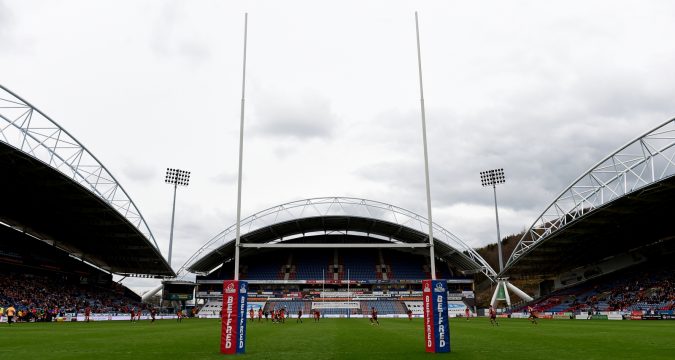 Matthew Shaw speaks to Huddersfield Giants Managing Director RICHARD THEWLIS about his club's ambition, both for the Giants and for Rugby League generally.
MS: You had a busy week, with two incomings (Aidan Sezer and Owen Trout) and a departure (Kruise Leeming). What's your take on the business?
RT: Firstly the outgoing was very disappointing.
Matthew Shaw speaks to Huddersfield Giants Managing Director RICHARD THEWLIS about his club's ambition, both for the Giants and for Rugby League generally.
MS: You had a busy week, with two incomings (Aidan Sezer and Owen Trout) and a departure (Kruise Leeming). What's your take on the business?
RT: Firstly the outgoing was very disappointing. A Q&A with Huddersfield Giants Managing Director Richard Thewlis
 Matthew Shaw speaks to Huddersfield Giants Managing Director RICHARD THEWLIS about his club's ambition, both for the Giants and for Rugby League generally.
MS: You had a busy week, with two incomings (Aidan Sezer and Owen Trout) and a departure (Kruise Leeming). What's your take on the business?
RT: Firstly the outgoing was very disappointing.
Matthew Shaw speaks to Huddersfield Giants Managing Director RICHARD THEWLIS about his club's ambition, both for the Giants and for Rugby League generally.
MS: You had a busy week, with two incomings (Aidan Sezer and Owen Trout) and a departure (Kruise Leeming). What's your take on the business?
RT: Firstly the outgoing was very disappointing. 